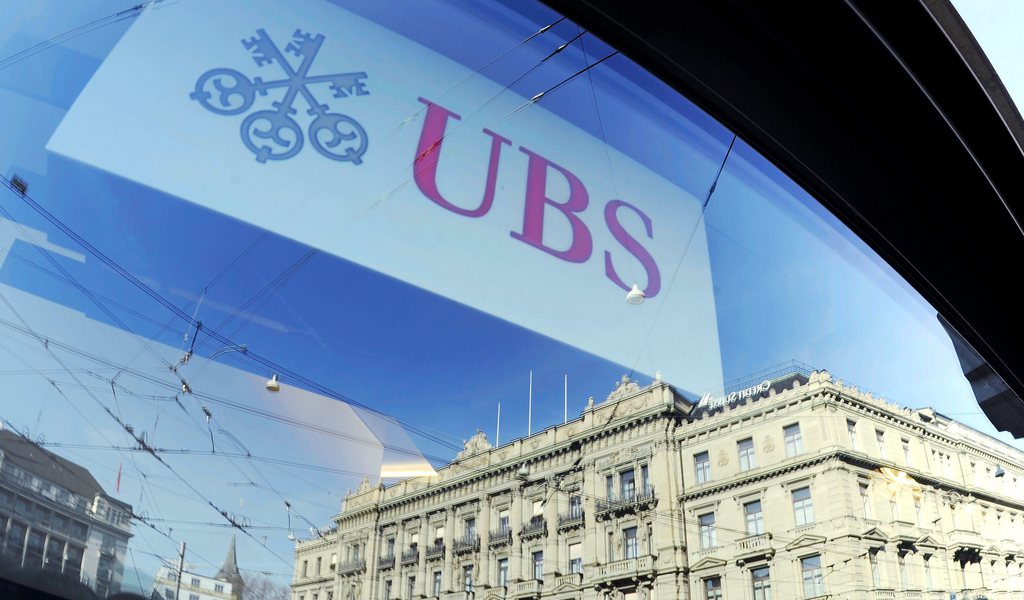UBS to buy back government bailout fund

Swiss banking giant UBS aims to end an embarrassing chapter in its history by buying back the remainder of the Swiss National Bank’s (SNB) bailout fund which absorbed the troubled bank’s toxic assets during the 2008 financial crisis.
UBS says it expects to exercise an option to acquire the so-called StabFund in the fourth quarter once it finishes paying back a connected loan to the SNB. The move would bolster its capital and reinforce its resistance against future shocks, the bank said.
When the SNB set up the stabilisation fund, a type of bad bank, in October 2008, it purchased $38.7 billion (CHF36 billion) in “toxic” UBS securities which risked destroying the bank at the time.
Since then the market for these previously untouchable assets has recovered and the SNB has been gradually able to reduce its holdings. The sale or maturity of assets and interest payments realised gains of CHF830 million to the fund in the first half of this year.
The net worth of the fund at the end of June was just over CHF7.5 billion.
The Swiss National Bank posted a CHF7.3 billion ($7.9 billion) loss in the first half of this year, as the plunging value of gold blasted a CHF13.2 billion hole in its accounts.
The stark book losses represented a major departure from previous financial results that had remained positive for several quarters, boosted by gains in the value of the SNB’s 1,040 tonne gold stockpile.
But the price of gold has plunged from CHF48,815 per kilogram at the end of 2012 to CHF36,168 at the end of June this year.
The SNB’s gold reserves have been the subject of intense political debate in recent months, with rightwing parties forcing a future referendum that demands the SNB should double its present gold reserves to 20% of its total assets.
The central bank was criticised for selling off a large chunk of its reserves before the 2008 financial crisis when gold prices were low, in order to bolster cantonal coffers.
The central bank’s 2013 H1 financial results were rescued by CHF5.8 billion gains made on foreign currency positions.
The SNB’s foreign currency trades were largely driven by the central bank’s controversial policy of capping the Swiss franc exchange rate with the euro at CHF1.20.
The Stabilisation Fund (of UBS toxic assets) made a gain of $830 million (CHF770 million) in the first six months of 2013.
The H1 2013 losses compared to a CHF6.9 billion profit at the end of 2012 and a gain of CHF6.5 billion in the corresponding period last year when gold prices were rising.
Drawing a line
The Swiss government also took a nine per cent stake in UBS as part of the bailout, in return for a CHF6 billion lifeline to the bank. Switzerland sold the stake less than a year later at a CHF1.2 billion profit.
UBS will buy the bailout fund back from Switzerland’s central bank later this year once it pays off the remaining CHF1.2 billion of the original $25.8 billion (CHF24 billion) loan.
It can purchase it for $1 billion plus 50 per cent of its gains. The move will add up to 90 basis points to UBS’s capital ratios, by taking on the cash and securities remaining after the loan is repaid.
For UBS the transaction will draw a line under assets connected to the financial crisis.
Crisis legacy
Tuesday’s announcement came as UBS released its second-quarter earnings report, confirming that it earned CHF690 million, up from CHF524 million a year earlier. Earnings at its investment bank leapt.
In another overhang from the crisis, it was announced last week that UBS will pay $885 million to settle United States government claims that it violated securities laws in its sales of mortgage-backed bonds between 2004 and 2007 to two federally-controlled mortgage finance companies.
The Federal Housing Finance Agency (FHFA), which oversees the two companies known as Fannie Mae and Freddie Mac, announced the settlement on July 25.
The agency had sued UBS and 17 other major banks over their sales to Fannie and Freddie of about $196 billion in mortgage securities that soured when the housing market collapsed in 2007.

In compliance with the JTI standards
More: SWI swissinfo.ch certified by the Journalism Trust Initiative







You can find an overview of ongoing debates with our journalists here . Please join us!
If you want to start a conversation about a topic raised in this article or want to report factual errors, email us at english@swissinfo.ch.